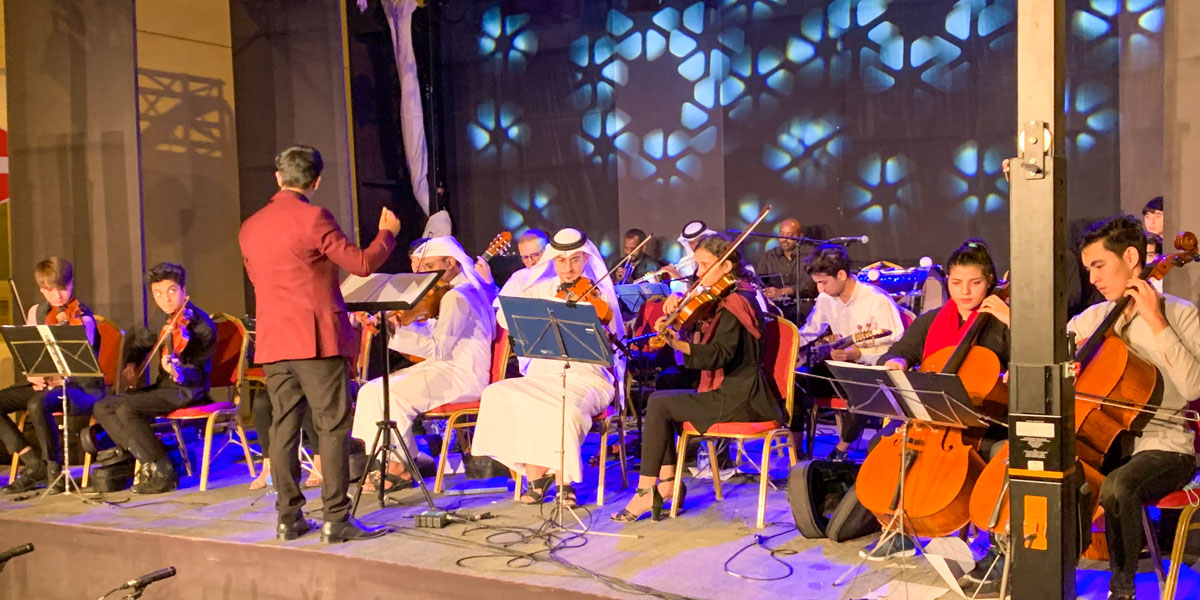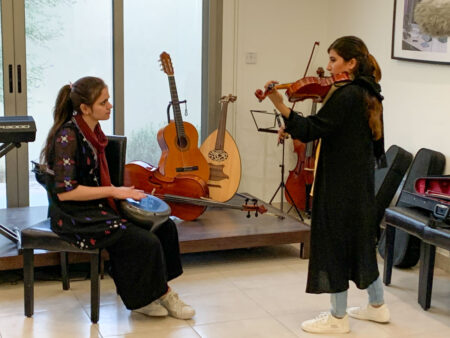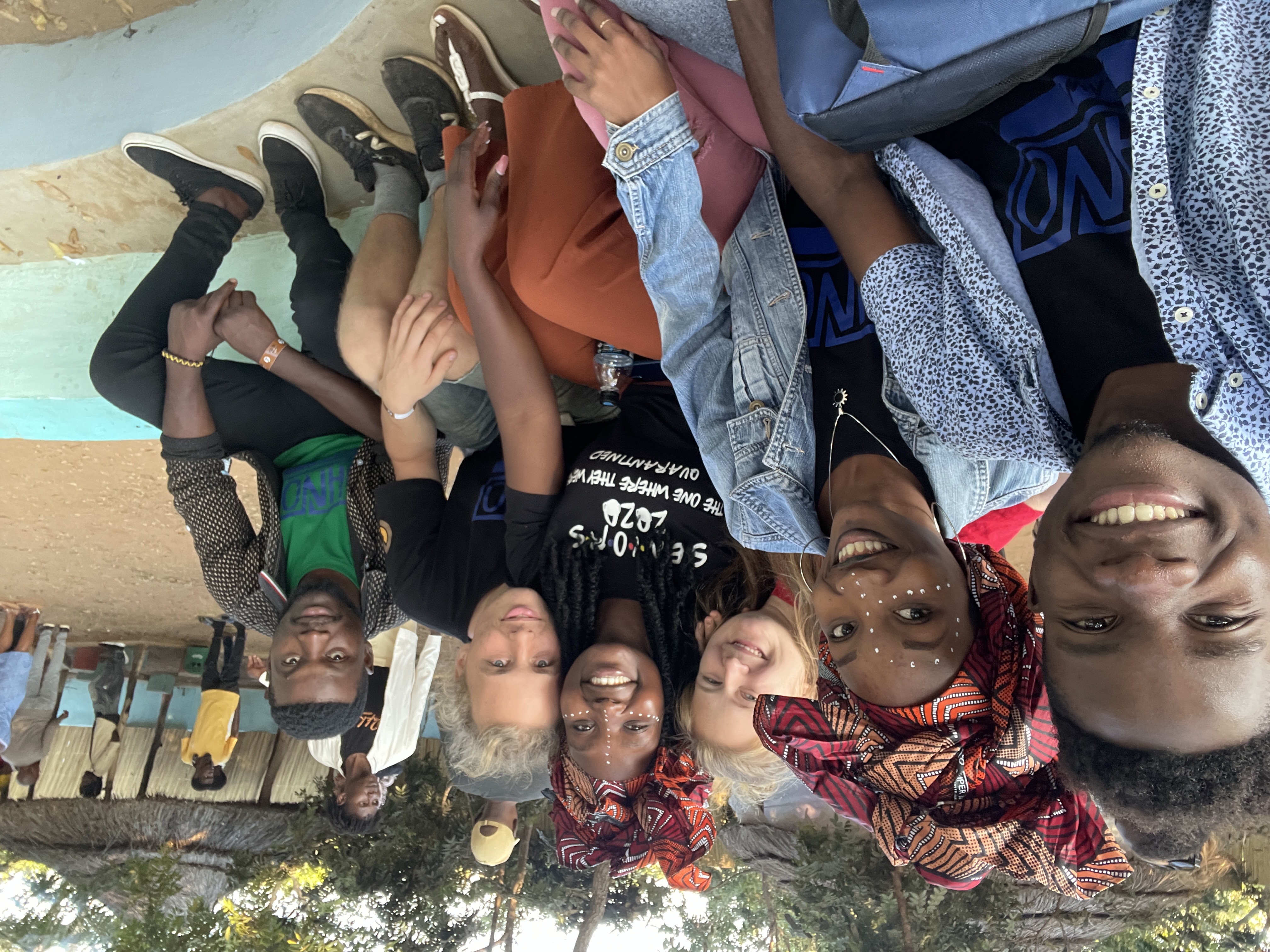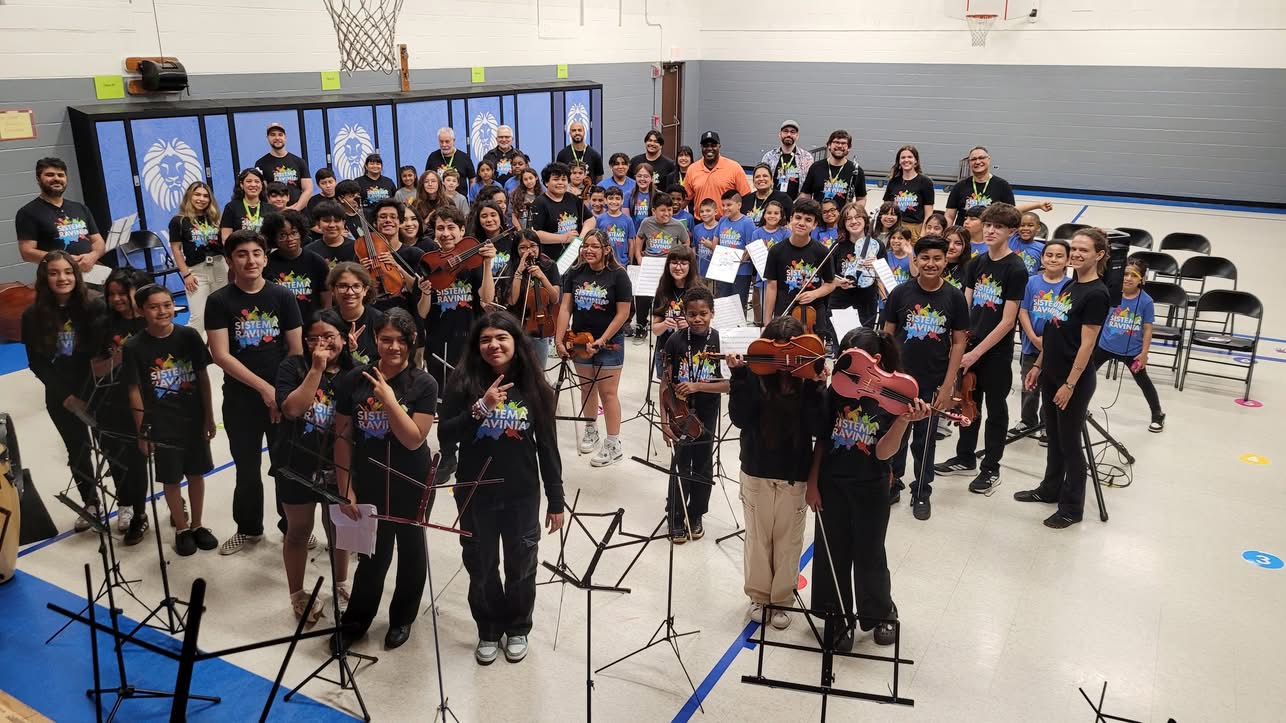
Topics
News & Resources
Music Endures at the Afghanistan National Institute of Music
Eric Booth, Cofounder, The Ensemble, in conversation with Ahmad Naser Sarmast, Founder/Director, ANIM

Mohammada Qambar Nawshad, Conductor of ANIM Symphony Orchestra, leads a joint performance of ANIM and Qatar Military Music Band in a refugee compound in Doha.
“Playing music is our due right. We will never give up. We continue fighting for our rights.” – Shogofa, 19, percussionist and one of the conductors of Zohra Orchestra.
The global field of music for social change watched with fear as the Taliban took over Kabul on August 15, 2021, threatening our colleagues at the Afghanistan National Institute of Music (ANIM). The school had gained international renown for its innovative approach to music education, for the tours of its many ensembles and orchestras (one U.S. tour included Carnegie Hall), and for its all-female ensemble Zohra, a vibrant example of the beginning of women’s empowerment in modern Afghanistan.
During the Taliban’s previous rule, from 1995 to 2001, music had been forbidden and musicians who dared to play were brutally punished. The ANIM campus had long been a target of Taliban terrorism, not only for its musical focus but also for its male/female coeducation and promotion of women. Its visionary founder/leader, Ahmad Sarmast, had once been injured in a terrorist bombing.

In August, the peaceful campus, which included dormitories and a performance space, was taken over almost immediately by the Taliban, who are now using it as an operations center. Since then, we have been holding our collective breath, worrying about the safety of ANIM’s hundreds of students and faculty.
But on November 16, a plane landed in Doha, Qatar, carrying 13-year-olds Farida and Zohar and completing the safe escape from Afghanistan of 272 ANIM students, teachers, staff, and relatives. The flight was the last in a series arranged by the government of Qatar. As the two girls stepped off the plane, their first action was to run and embrace their teacher.
Ahmad Sarmast had been in Australia when the Taliban took over Kabul and worked tirelessly with the governments of Qatar and Portugal to secure this escape. In Doha, the young ANIM musicians have been rehearsing and performing with local musicians. The longer-range plan is for ANIM to establish a new home in Portugal.
Sarmast and the teachers and students imagine a time when they can return to their homeland. But for now, in Qatar, and before long in Portugal, they are safe and musically alive together. Sarmast stated to The New York Times, “It’s such a huge relief. They can dream again. They can hope.”
“Taliban wants Afghan women to just stay at home, bring babies, and raise children. But this is our life and we should not let them decide for our life.” – Rabia, 17, Rubab player and a member of Zohra Orchestra.
Related Content
Collaborations, Community Building, Featured, Gather Together, New Orleans, North America, Perspectives & Collective Action, Student Voice & Leadership

The Importance of Free Play in Music Education
Patrick Scafidi

Ambassadors, Collaborations, Community Building, Featured, Gather Together, Middle East, Perspectives & Collective Action, Student Voice & Leadership, Teaching & Learning, the world ensemble

In Jerusalem, a Space for Healing
Patrick Scafidi

Collaborations, Community Building, Europe, Featured, Gather Together, Student Voice & Leadership, Teaching & Learning, the world ensemble

An International Exchange Program Shifts Power Through Music
Patrick Scafidi

Collaborations, Community Building, Featured, Gather Together, North America, Perspectives & Collective Action, Program Design, Student Voice & Leadership, Teaching & Learning, the ensemble

GUEST PERSPECTIVE
A Foot in Both Worlds: Mentorship and Maturation at Sistema Ravinia
Patrick Scafidi


